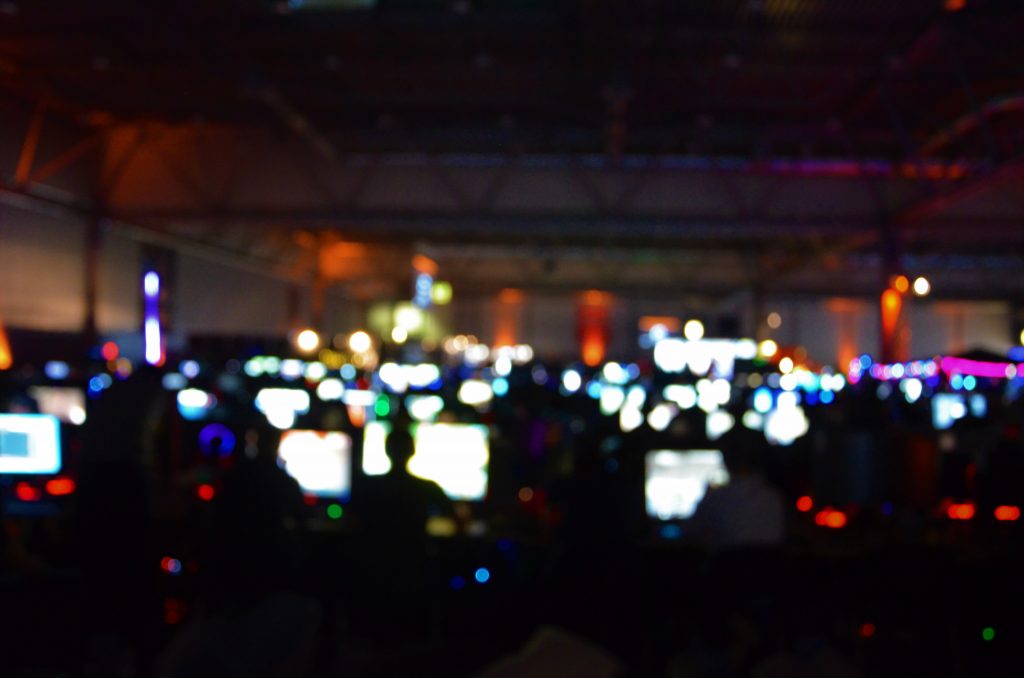Doctoral Thesis
Embodying Gaming
Actualizing the Virtual at Computer Game Events
Commercial Gaming Events attract hundreds of thousands of visitors every year as well as millions of people who follow the events online. They exemplify various contemporary developments surrounding digital technologies and the impacts they have on culture and society, as well as the research of these phenomena, especially with regards to ethnographic research comprising of classical “offline” methods combined with means of digital ethnography.
The materialization of digital gaming culture in the context of these events reveals specific dynamics of simultaneous experiences of various “digital” and “non-digital” planes of interaction. The borders between “online” and “offline” are blurred and the merging of “digital” and “non-digital” practices are celebrated as part of these events. As such they are unique fields for anthropological research, as this aspect of parallel and simultaneous interactions poses new challenges for ethnographic research, but at the same time allows new insights into the field and its agents on different planes of interactions.
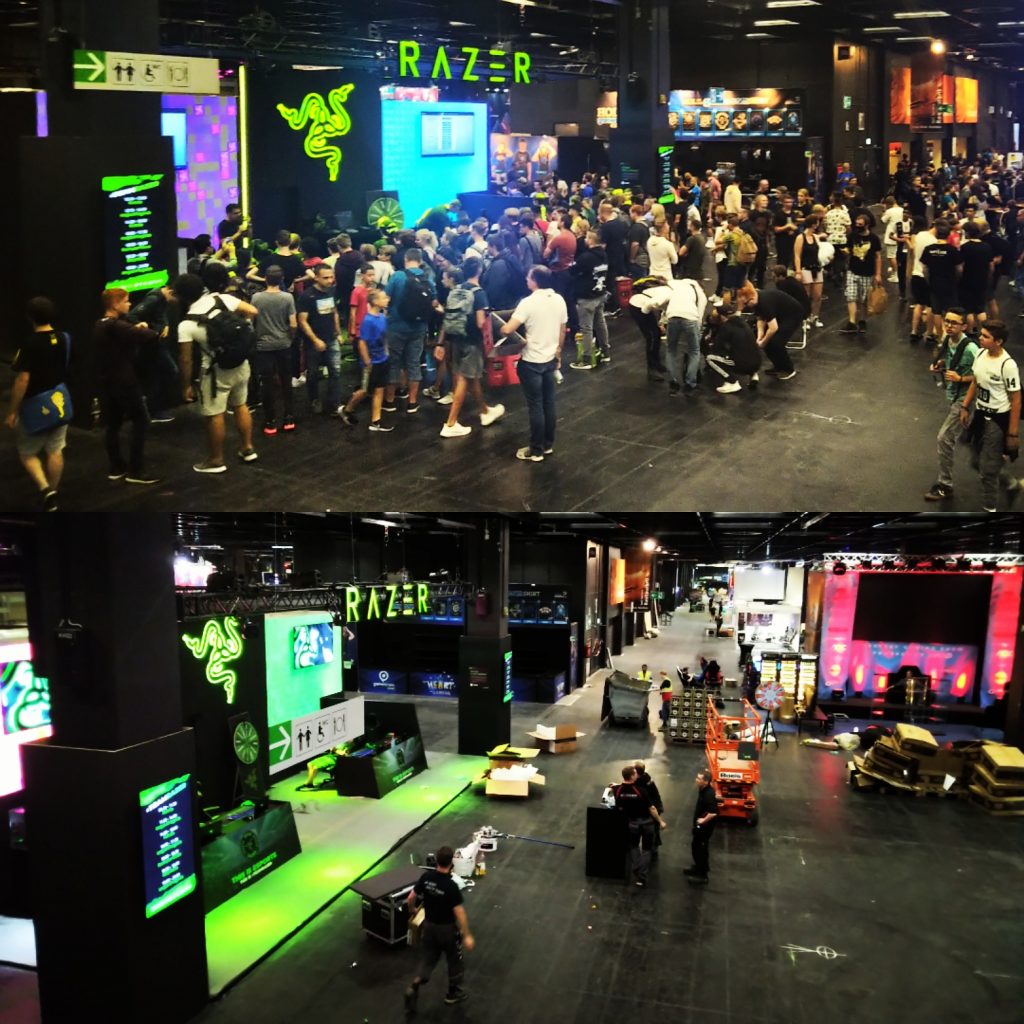
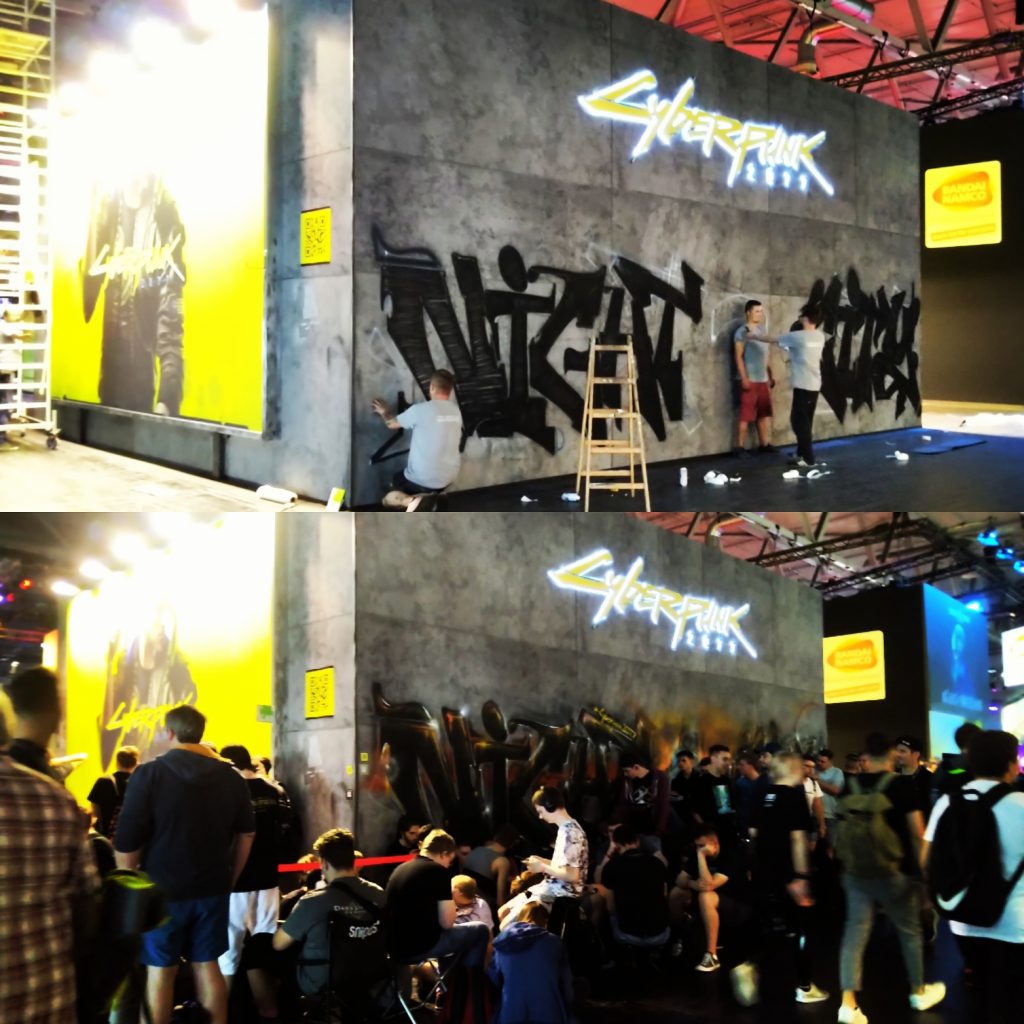
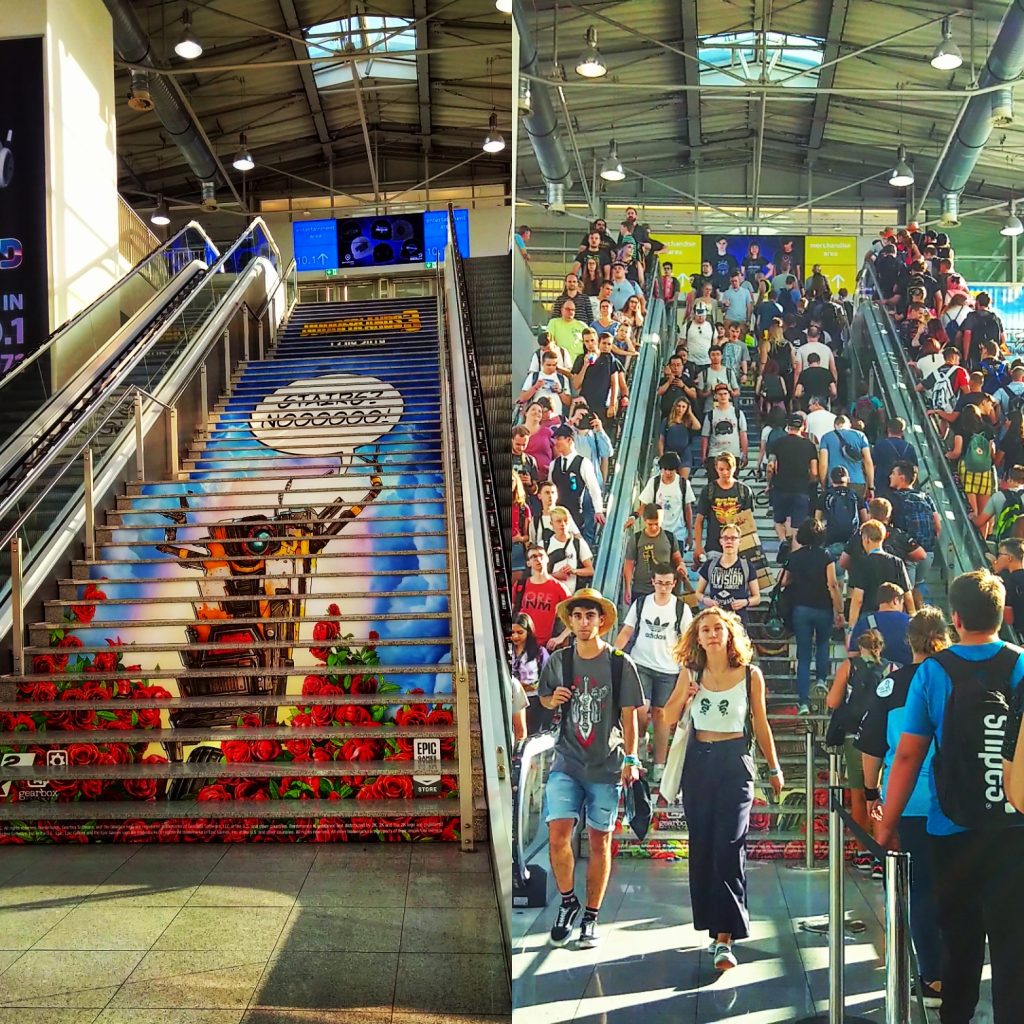
My ethnographic research is situated in this hybrid field between “online” and “offline”, within the physically materialised culture of digital games at “real-life” events. “Classical” and “digital” ethnographic methods are interwoven, to follow a research field, that can’t be situated exclusively in- or outside “the digital” but is characterized by this interconnection. Computer games, social media, streaming platforms and team speak clients are just as much part of the field, as queuing in front of exhibition halls or gaming booths, crowds, as far as the eye can see, and cosplayers embodying digital characters. The challenge to combine ethnographic research of various layers of “digital” and “non-digital” happenings, while doing the field and its agents justice, is not limited to gaming events but raises more general questions for the anthropological research of theses hybrid fields. How can we tackle these collapsed distinctions between “online” and “offline” research? As field research intensifies through simultaneous happenings online, we also need to ask how we can document these multiple layers of interaction?
With a praxeological, cultural-analytical approach, this project examines (everyday) practices, interactions and negotiations in their larger socio-political context, as they exemplify a wide range of challenges posed to digital anthropology. As the field of gaming events combines “digital” and “real-life” practices in a unique way, they reveal several dynamics, that are paradigmatic for the merging of “online” and “offline” practices. Even though bodies are treated as a relatively unimportant factors in digital gaming, they become significant in many particular ways in the context of gaming events. Digital experiences of gaming are suddenly “embodied” at those events. The “embodiments” of digital worlds can be seen in cosplays, fan clothing or tattoos, which are practices connected to the identity as a gamer for the research participants, but at the same time serve as advertising measures for companies and exhibitors at the events. Thus, processes of becoming a gamer, bodily experiences “online” and “offline”, and their links to consumption practices are focused in this research. How can we understand the simultaneous physical and digital presence of gamers at gaming events? And how can we describe their active participation in relation to the production of market values? How do gamers shape self-determined experiences through material and aestheticized consumption? How are aesthetics, bodies, emotional experiences and brands connected in a paradigmatic form of economy, that allows agents to articulate themselves within these commodified practices?
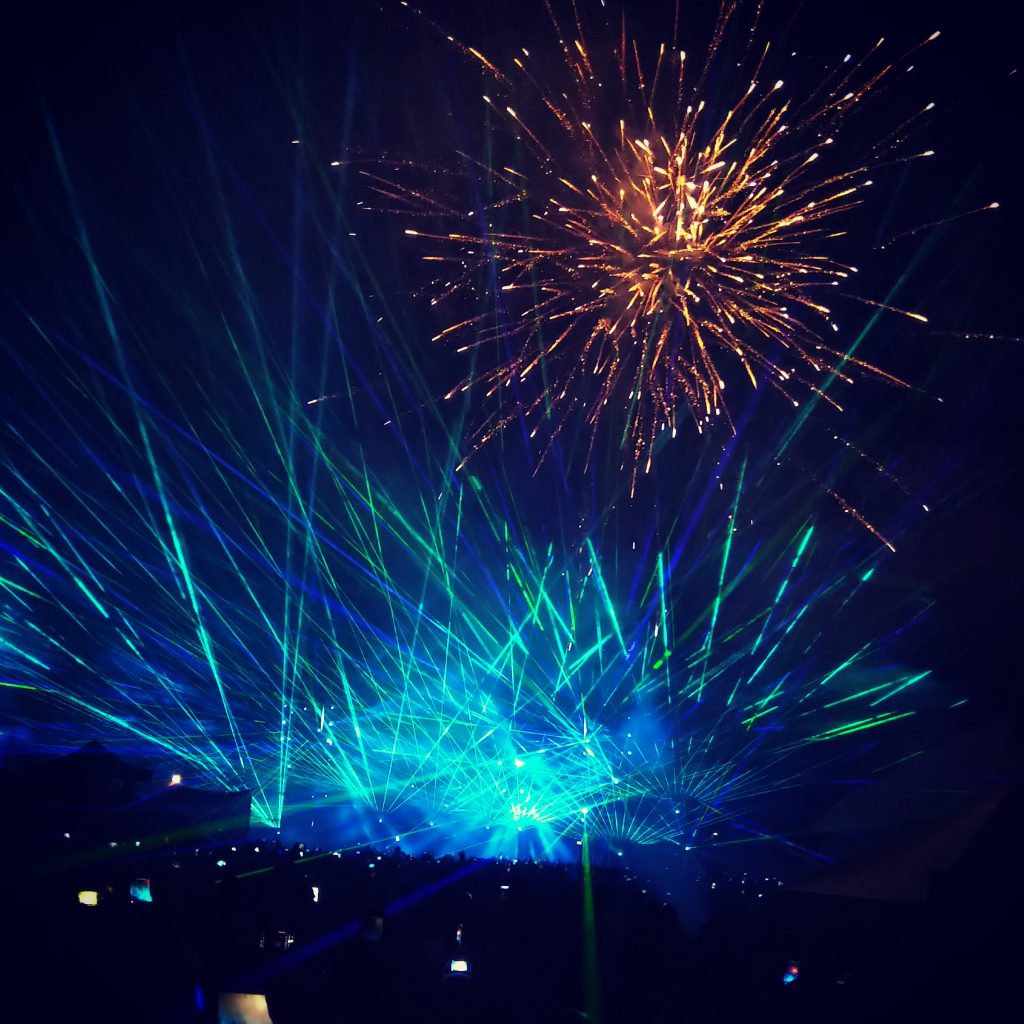
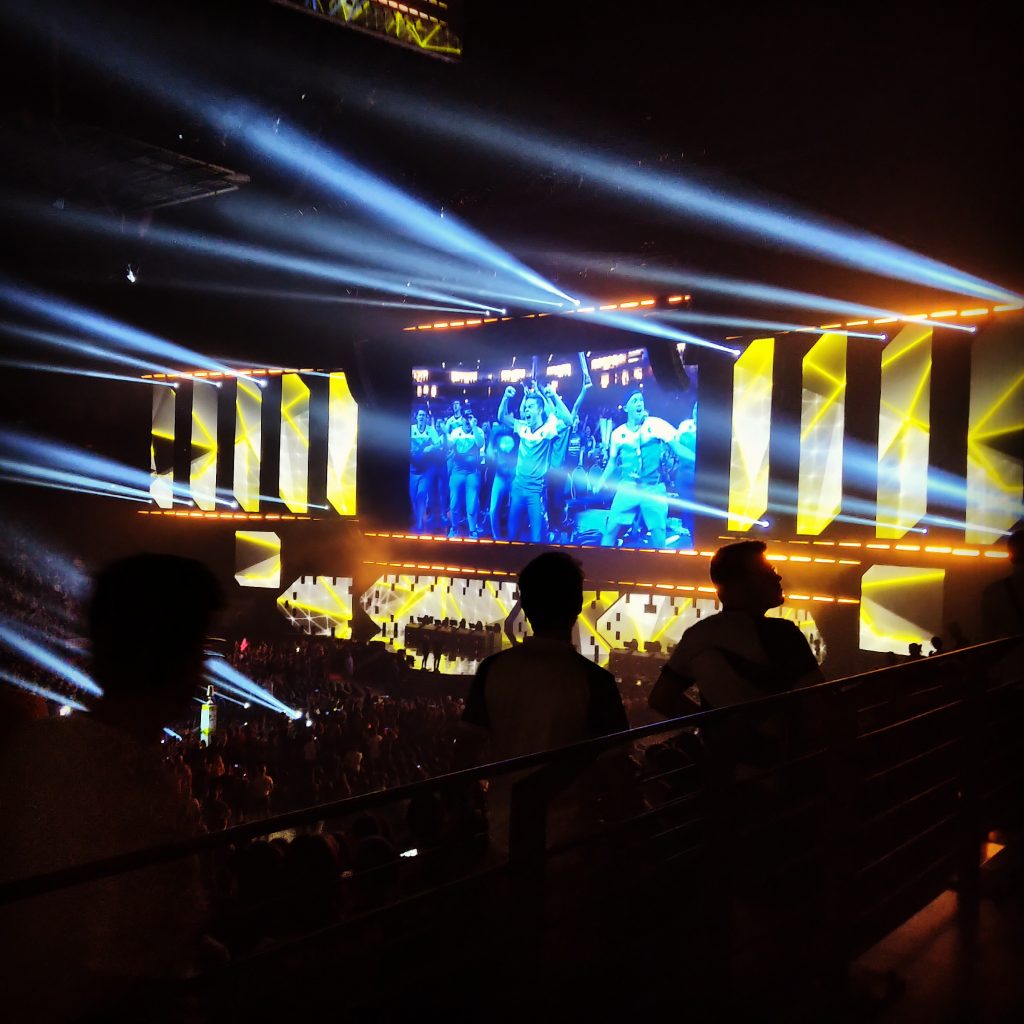
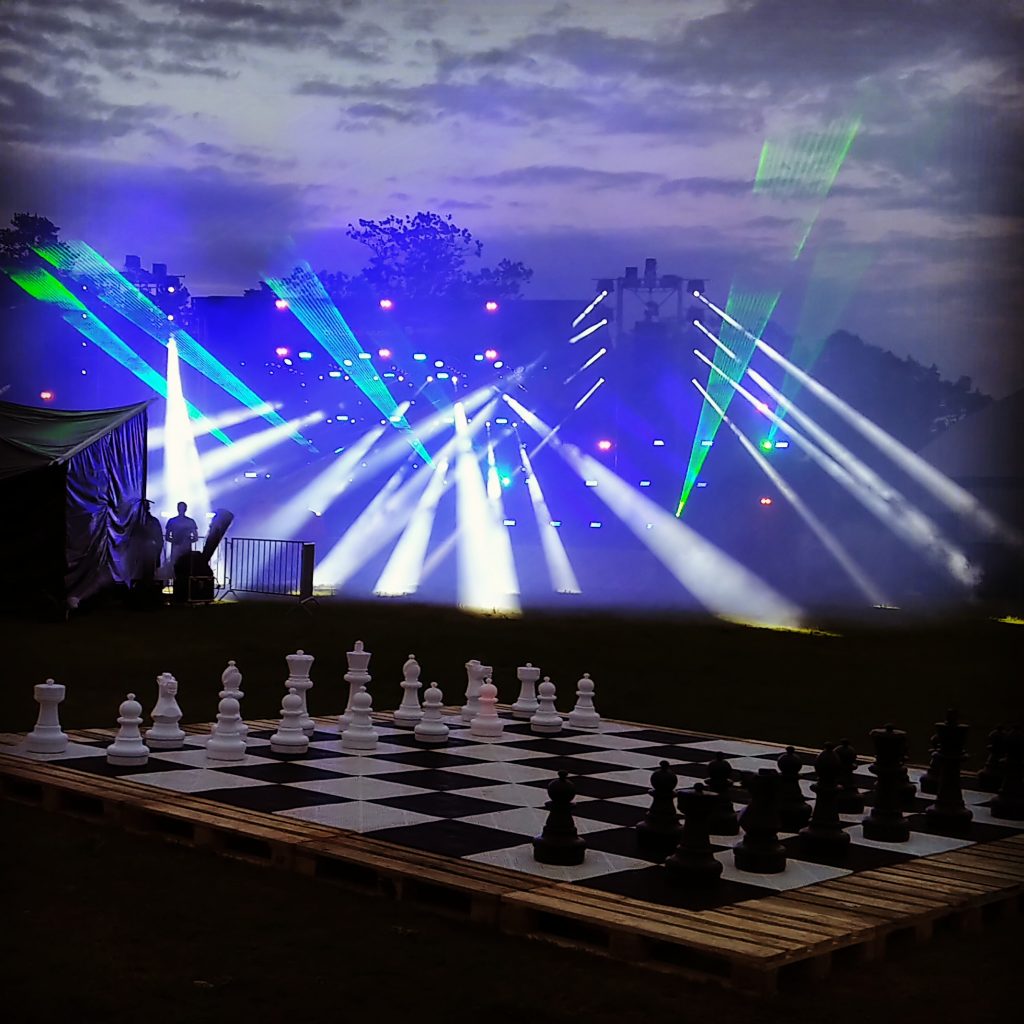
Digital Games are a prime example of an “experience economy” (Pine & Gilmore 1999:20), selling positive emotional experience to gamers rather than material goods or products. Their selling point is based on the experienced or emotional value, same can be said for commercials events. The conjunction of the two in commercial gaming events serves as extreme example of an economy focusing on the selling of an adventure that merges “real-life” and digital gaming experiences. In order to generate positive experiences, gamers participate (pro-)actively and enthusiastically in production processes. Digital and physical competitions are employed to provide an intense experience involving all (bodily) senses. Contrary to clichés of “sitting around” in front of a computer, competitions involving bodily abilities and (muscle) strength are frequently employed at gaming events. The ethnographic findings reveal various examples of how digital experiences inscribe themselves into “real-life” practices and vice versa, merging and complementing each other. They also show how everyday practices linked to digital technologies often lead to unexpected developments. Gender is one aspect which is (re-)negotiated in often contradicting ways in digital communication and at the events. The observed practices stagger between hyper sexualization (especially of women) and sexism on one hand and the stressing of the unimportance of gender and non-conformity to binary gender roles on the other.
The crowd is imagined as a symbolic community in which one can show one’s “true” self, oscillating between (digital)fantasies and bodily experiences. Gaming events serve as materially manifested places in which the digital is reflected. The rapid alternation between digital games and physical encounters is not exclusive to, but specific for gaming events. As such I see gaming events as the condensation of a series of contemporary dynamics surrounding the interconnections of “digital” and “real-life” experiences.
Publications
2023 Multi-präsentes Ethnografieren. Ethnografische Anwesenheit in mehr-als-digitalen Feldern. In: Martina Klausner, Dennis Eckhart (eds.): Digital[ität] Ethnografieren. Forschungsmethoden für den digitalen Alltag. Kulturanthropologie Notizen 85/2023. pp. 96-110. Online: https://ka-notizen.de/index.php/ka-notizen/article/view/18/20
2021 Becoming a Gamer: Zwischen Teilhabe und Konsum, Kommodifizierung und Agency, In: Johannes Moser, Gertraud Koch, Lara Hansen (eds.): Welt.Wissen.Gestalten, Hamburger Journal für Kulturanthropologie HJK (13), pp. 621-630. Online: https://www.researchgate.net/publication/360458169_Becoming_a_Gamer_Zwischen_Teilhabe_und_Konsum_Kommodifizierung_und_Agency
Talks
2023 Digital Gaming Matter: Verkörperte virtuelle Welten. Lecture series: Die Welt mit anderen Augen sehen: Why Anthropology matters, 29.06.2023, University of Bonn, Germany.
2023 A Place like Cyberspace. Verkörperte Digitalitäten bei Gaming Events. Conference: Alltag der Digitalität, ögekw-Tagung, 18-20.05.2023, Klagenfurt, Austria.
2023 Digitales Spiel–Material: Gaming Events zwischen Virtualität und Materie. Lecture series: Digitale Anthropologie: Exemplarische Felder und interdisziplinäre Schnittstellen, 27.04.2023, University of Tübingen, Germany.
2023 Multi-präsentes Ethnografieren. Hybriden Gaming Events ethnografisch auf der Spur. Lecture series: Digital(ität) ethnografieren? Methoden für den digitalen Alltag, 25.01.2023, University of Frankfurt (Main), Germany.
2022 Digital Worlds “In-Between”: Practicing Hybrid Futures at Computer Game Events. Conference: Digital Futures in the Making: Imaginaries, Politics, and Materialities, 15.09.2022 – 16.09.2022 University of Hamburg, Germany.
2022 Gamers’ Play-Grounds. Practices of Play(ing) and Beyond at Video Game Events. Online-conference: Video Games as a Common Ground, 2-3.9.2022, University of Zadar, Croatia.
2022 Embodying Gaming. Entangling virtual and actual at computer game festivals, lecture, 03.05.2022, University of Zadar, Croatia.
2021 “Becoming Bigger than Myself”. Embodying Digital Gaming between Ritual and Play. Conference of Societé Internationale d’Ethnologie et de Folklore (SIEF) 2021, 19-24.06.2021, Helsinki, Finnland.
2021 Serendipity und Lucky Chances – Playfulness im Event Kontext, lecture series: Playing Video Games, 20.1.2021, University of Jena, Germany.
2021 Digital Gaming Embodied. Ethnographic Serendipity and Lucky Chances at Gaming Events. RustLAB lecture series: Data & Experimentalism. 14.01.2021. University of Bochum, Germany.
2020 Truths about Gaming. Ethnographic perspectives on truth-making “online” and “offline”. Conference: Digital Truth-Making. Ethnographic Perspectives on Practices, Infrastructures and Affordances of Truth-Making in Digital Societies, 7.-10.10.2020, University of Berlin, Germany.
2020 Exploring the “In-Between”. Reflecting ethnographic methods at Gaming Events. Conference: 16th EASA Biennial Conference, „New anthropological horizons in and beyond Europe“, Virtual Lisbon conference, ISCTE-University Institute of Lisbon and ICS-Institute of Social Sciences, 20-24.07.2020, University of Lisbon, Portugal.
2020 Spiel_Material. Zur ,Middle-Zone‘ zwischen Medien und Materie. Conference: DIS(S)-CONNECT II | Wie Medien uns trennen und verbinden. Interdisziplinäre Doktorand*innen-Tagung, 16-18.04.2020, University of Vienna, Austria.
2020 Spiel-Räume. Interferenzen von digitalen und materiellen Raum- und Körpererfahrungen bei Gaming Events. Conference: “Technocultures & Technoscapes”, 30.1.-1.2.2020, University of Bonn, Germany.
2019 Branding Gamers‘ Bodies: Verknüpfungen von Teilhabe und Konsum, Kommodifizierung und Agency im Kontext von Massen Gaming Events. Conference „Welt-Wissen-Gestalten“ der deutschen Gesellschaft für Volkskunde 2019, 7-10.10.2019, University of Hamburg, Germany.
2019 real.life.gaming.events. Kulturanthropologische Überlegungen zu ambivalenten Gaming Praktiken zwischen Krieg und Geborgenheit. PHD Symposium: Fahnenflucht aus digitalem Kriegsgebiet, 24.10.2019, University of Arts Linz/Donau, Austria.
2019 Gamers‘ Bodies – Die Produktion von Subjekt, Körper und ,Immersion‘ als performierte Vergnügungserfahrungen im Kontext von Gaming Events. Conference: DIS(S)-CONNECT | Wie Medien uns trennen und verbinden, 25.–27.04.2019, University of Mainz, Germany.
